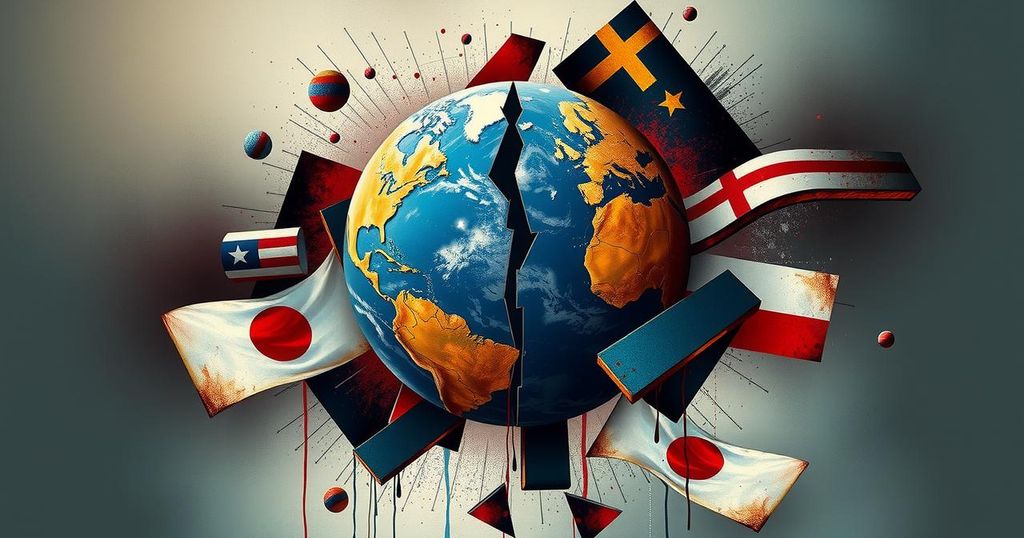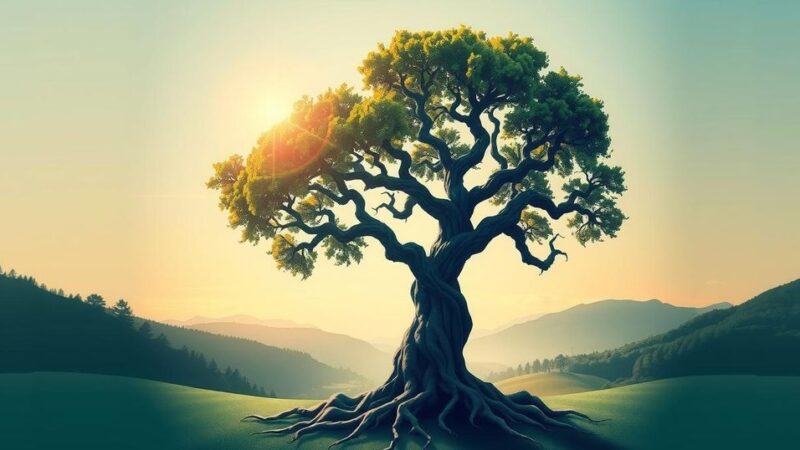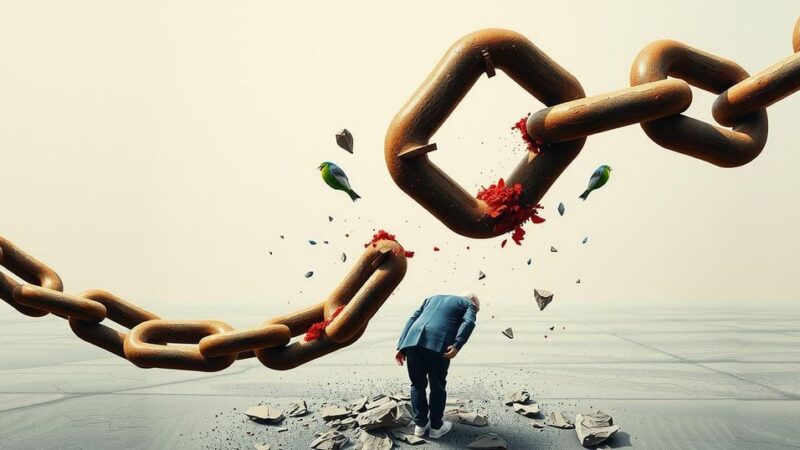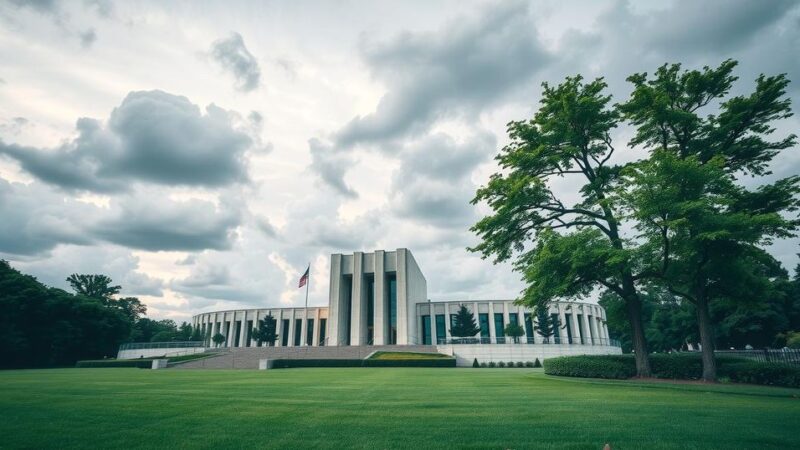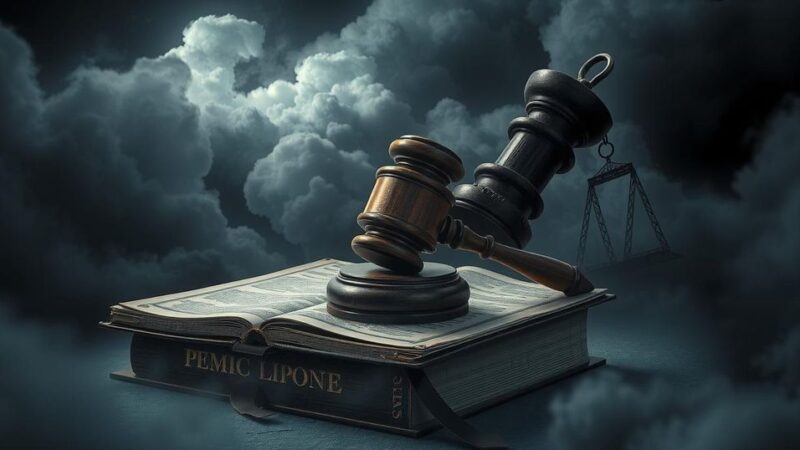Sue Williamson, a prominent anti-apartheid artist, is set to host a retrospective exhibition focusing on South Africa’s history and contemporary issues. She critiques Donald Trump and Elon Musk for their statements undermining South Africa’s credibility, particularly regarding allegations of genocide against Israel. Williamson emphasizes the importance of addressing historical injustices in land ownership and urges the necessity of recalling the past for future social progress.
Sue Williamson, an anti-apartheid artist, has spent over five decades illuminating the issues facing South Africa, transitioning from campaigning against apartheid to examining the nation’s ongoing journey toward reconciliation. As she prepares for her retrospective exhibition at the Iziko South African National Gallery, the 84-year-old artist has directed her focus toward two prominent figures: U.S. President Donald Trump and billionaire entrepreneur Elon Musk, originally from South Africa.
Recent comments made by Musk regarding South Africa’s supposedly “openly racist policies” coincided with Trump signing an executive order that restricted U.S. aid to South Africa. This action was justified by Trump’s claims of “unjust racial discrimination” against white Afrikaners and included an offer of asylum for them in the United States. Furthermore, Trump criticized South Africa’s accusations against Israel regarding genocide, asserting that the country was taking aggressive stances against the U.S.
In an interview conducted from her studio in Cape Town, Williamson expressed that she perceives Trump and Musk’s remarks as acts of gaslighting. She referenced South Africa’s case against Israel, brought to the International Court of Justice (ICJ), which alleges genocide against Palestinians. Williamson emphasized the credibility of South Africa’s claims against Israel, asserting that the nation is often unjustly discredited by political figures.
Williamson dismissed allegations regarding the expropriation of land from white Afrikaner farmers, stating, “It’s a much more considered process.” She highlighted the long history of land dispossession that dates back to the 1913 Land Act, advocating for necessary reversals in land ownership to address historical injustices. Recently, South African President Cyril Ramaphosa enacted legislation permitting the expropriation of land without compensation under specific conditions.
Throughout her career, Williamson has championed community-driven activism through art. Her journey began through art classes while working in advertising in New York and evolved into significant social activism upon her return to South Africa in 1969. The 1976 anti-apartheid protests catalyzed her involvement in multiracial activism, aiming for equality across segregated society.
Williamson’s artistic legacy includes poignant installations that document the demolitions of non-white homes, emphasizing the human cost of apartheid policies. One notable work, “The Last Supper,” utilized rubble from neighborhoods targeted for demolition, narrating the painful truths experienced by communities. Williamson’s retrospective features new pieces grounded in her foundational themes of social justice and historical memory.
In her 2013 work, “There’s something I must tell you,” Williamson showcased the narratives of veteran activists sharing their experiences with younger generations. She noted the importance of educating the youth about history to contextualize their societal standing. Williamson recognizes the evolving nature of discourse among young people today and is contemplating the need for new works to engage with their perspectives.
Sue Williamson’s art represents a vital response to the historical and current issues facing South Africa, spotlighting the challenges of reconciliation and remembrance. As she critiques U.S. political figures for their incendiary remarks about South Africa, she reinforces the importance of recognizing and addressing past injustices. Williamson’s retrospective serves not just as an artistic examination but as a call to reflect on societal progress and historical awareness.
Original Source: www.theguardian.com
